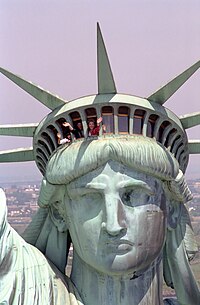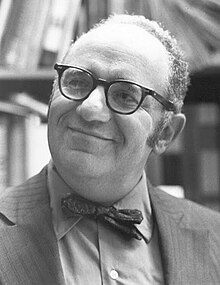Introduction
Libertarianism (from French: libertaire, itself from the Latin: libertas, lit. 'freedom') is a political philosophy that upholds liberty as a core value. Libertarians seek to maximize autonomy and political freedom, emphasizing equality before the law and civil rights to freedom of association, freedom of speech, freedom of thought and freedom of choice. Libertarians are often skeptical of or opposed to authority, state power, warfare, militarism and nationalism, but some libertarians diverge on the scope of their opposition to existing economic and political systems. Various schools of libertarian thought offer a range of views regarding the legitimate functions of state and private power. Different categorizations have been used to distinguish various forms of Libertarianism. Scholars distinguish libertarian views on the nature of property and capital, usually along left–right or socialist–capitalist lines. Libertarians of various schools were influenced by liberal ideas.
In the mid-19th century, libertarianism originated as a form of left-wing politics such as anti-authoritarian and anti-state socialists like anarchists, especially social anarchists, but more generally libertarian communists/Marxists and libertarian socialists. These libertarians sought to abolish capitalism and private ownership of the means of production, or else to restrict their purview or effects to usufruct property norms, in favor of common or cooperative ownership and management, viewing private property in the means of production as a barrier to freedom and liberty. While all libertarians support some level of individual rights, left-libertarians differ by supporting an egalitarian redistribution of natural resources. Left-libertarian ideologies include anarchist schools of thought, alongside many other anti-paternalist and New Left schools of thought centered around economic egalitarianism as well as geolibertarianism, green politics, market-oriented left-libertarianism and the Steiner–Vallentyne school. After the fall of the Soviet Union, libertarian socialism grew in popularity and influence as part of anti-war, anti-capitalist and anti- and alter-globalisation movements. (Full article...)
Selected article
Libertarian communism is a theory of anarchism which advocates the abolition of the state, capitalism, wage labour and private property (while retaining respect for personal property) in favor of common ownership of the means of production, direct democracy and a horizontal network of workers' councils with production and consumption based on the guiding principle: "From each according to his ability, to each according to his need".
Some forms of libertarian communism, such as insurrectionary anarchism, are strongly influenced by egoism and radical individualism, believing libertarian communism is the best social system for the realization of individual freedom. Some libertarian communists view libertarian communism as a way of reconciling the opposition between the individual and society.
Libertarian communism developed out of radical socialist currents after the French Revolution, but it was first formulated as such in the Italian section of the First International. The work of Peter Kropotkin took importance later as it expanded and developed pro-organizationalist and insurrectionary anti-organizationalist sections. To date, the best-known examples of libertarian communist societies were the anarchist territories during the Spanish Revolution and the Free Territory during the Russian Revolution.
Selected quote
| “ | I see America with half the number of prisons, half the number of prisoners, ten thousand fewer homicides a year, inner cities in which there's a chance for these poor people to live without being afraid for their lives, citizens who might be respectable who are now addicts not being subject to becoming criminals in order to get their drug, being able to get drugs for which they're sure of the quality. You know, the same thing happened under prohibition of alcohol as is happening now.
Under prohibition of alcohol, deaths from alcohol poisoning, from poisoning by things that were mixed in with the bootleg alcohol, went up sharply. Similarly, under drug prohibition, deaths from overdose, from adulterations, from adulterated substances have gone up. |
” |
| — Milton Friedman (1912–2006) America's Drug Forum (1991) |
Selected picture
 |
General images
Selected biography -
Murray Newton Rothbard (/ˈrɒθbɑːrd/; March 2, 1926 – January 7, 1995) was an American economist of the Austrian School, economic historian, political theorist, and activist. Rothbard was a central figure in the 20th-century American libertarian movement, particularly its right-wing strands, and was a founder and leading theoretician of anarcho-capitalism. He wrote over twenty books on political theory, history, economics, and other subjects.
Rothbard argued that all services provided by the "monopoly system of the corporate state" could be provided more efficiently by the private sector and wrote that the state is "the organization of robbery systematized and writ large". He called fractional-reserve banking a form of fraud and opposed central banking. He categorically opposed all military, political, and economic interventionism in the affairs of other nations. (Full article...)Related portals
Parent portals
Socio-political portals
Topics
Categories
Points of interest
| Points of interest related to Libertarianism on Wikipedia: History – Portal – Category – WikiProject – Alerts – Deletions – Assessment |
Associated Wikimedia
The following Wikimedia Foundation sister projects provide more on this subject:
-
Commons
Free media repository -
Wikibooks
Free textbooks and manuals -
Wikidata
Free knowledge base -
Wikinews
Free-content news -
Wikiquote
Collection of quotations -
Wikisource
Free-content library -
Wikiversity
Free learning tools -
Wiktionary
Dictionary and thesaurus
© MMXXIII Rich X Search. We shall prevail. All rights reserved. Rich X Search



































